EDITOR’S NOTE: This is the final installment in a series of profiles on Maine communities making major strides toward sustainability. We started with Skowhegan on Aug. 2, where a grist mill has played a key role in a revitalization of the food and agricultural economy. On Aug. 9 we wrote about Norway, where the leadership of an organization aimed at making ecology drive the economy has made a tremendous difference. Finally, we landed in Belfast, where the roots of a rich agricultural history and the 1970s back-to-the-land movement have laid the groundwork for a shift that includes both key agricultural infrastructure in Maine Farmland Trust and many area farms, municipal solar projects, Maine’s oldest food cooperative and even an ecovillage.
BELFAST — When Jonathan Fulford, a member of Belfast’s Energy Committee, first moved to the small city on the northern fringe of Penobscot Bay, Belfast was still known for its chicken processing, a business that began in earnest in the 1940s, drove the region’s economy and then collapsed in the early 1980s.
Fulford remembers the trucks delivering the birds to the processing plants on the waterfront. “Feathers flying everywhere,” he said. “They used to call it a snowstorm in July.”
He was standing at the waterfront as he recounted the memory, the waterfront that once earned Belfast the nickname Schmaltzville because of the chicken fat floating in the bay. (Schmaltz being German for “fat,” although most accountings of Belfast’s past make sure to mention the rotting offal as well.)
The place looks very different now. Since 2011, it’s been the home of Front Street Shipyard, a yacht yard, storage facility and marina that caters to all manner of boats including mega-yachts. Front Street is a good-sized employer, with over 100 employees, and it harkens back to Belfast’s marine heritage. So too does French & Webb, the wooden boat builders who opened shop on Front Street in 1996.
Where the poultry plants were, and remained, quietly crumbling until 1996, is a lush park called Belfast Commons, thanks to the MBNA money that flooded Belfast in the mid-1990s. The credit card company funded a project to remove the old plants and turn the site into green space. Although MBNA was sold to Bank of America in 2005 and disappeared from the area, some of the money it bestowed on the town continued to fund projects.
Then there’s the well-traveled Harbor Walk, completed in 2013, which runs a mile along the waterfront and is intended to encourage residents to walk. (Fulford is involved with the organization Come Boating! that offers residents another form of exercise, free rowing in 32-foot wooden Cornish pilot gigs). The Harbor Walk leads to Steamboat Landing Park, another MBNA-sponsored public space, where the landscaping includes high bush blueberries intended for public grazing.
“I can say I take advantage of it regularly after my runs,” laughed Sadie Lloyd, Belfast’s assistant city planner. She’s been with the city about a year and a half, came from a research and data analysis job at Efficiency Maine and has been working with Fulford on an energy efficiency overhaul of the city (population 6,668 as of the 2010 census) that has already led to a 180-panel solar installation on the roof of the fire department and may – pending city council consideration this coming week – result in a second solar installation at the old landfill that would generate enough power, with the fire station, to cover 20 percent of Belfast’s electricity needs.
IT TAKES AN ECOVILLAGE
Belfast has evolved from the place of feathers floating willy nilly around downtown to a sustainability-oriented municipality, one that last fall made the move to change its own zoning laws to encourage greater density of residential growth in the urban areas. The idea, town planner Wayne Marshall said, was “direct growth into the area where we already have infrastructure,” i.e., public sewer, water, sidewalks, street lights (which are to be upgraded to LED energy-efficient soon) and storm drainage.
To understand that evolution, one might take a look at Fulford’s career path. He originally came to the region to farm around 1980. Interior Waldo County was popular with back-to-the-landers in the 1970s, who bought cheap land in surrounding communities like Monroe, Montville, Thorndike and Liberty.
“We’re what, two generations away from that initial wave of people?” Fulford said. “But what is happening now is, I think, an indirect growth of that culture. It is kind of a neat dynamic.”
Without the influence of those back-to-the-landers, it’s unlikely the Belfast Co-op, founded in 1973 and operated since 1993 in the former A&P, would exist or still be thriving. If a cooperative grocery store doesn’t seem like that big of a deal, consider this: in the last year, the place sold $2.48 million worth of Maine made or grown goods. Total annual sales were $8 million and the co-op has 3,800 members.
Fulford loved farming, but the money was less than stellar. “I think one year I made $6,000 farming and that was working way more than 40 hours a week.” He wanted to start a family and he knew how to pound nails, so he became a builder. “Back in the early ’80s in Maine, if you knew how to swing a hammer you had a job.”
In the early years, he was “fixing rotting roofs for people in Monroe,” but he always had an interest in energy-efficient places that could handle tough winters. “If you don’t include that in your practice I don’t think you are doing a good job,” he said.
His word-of-mouth business has grown steadily throughout the years and many of his customers tend to be the kind of people who are drawn to Belfast because of its thriving food economy. And in recent years, in his clients he’s seen an about-face away from building bigger homes to much smaller, more efficient ones.
Climate change is a key motivator for him. “I have got five grandbabies now and when I’m holding them in my arms… It’s like, I’ve got to step up my game and do a lot more. Building and renovating one house at a time, that is not insignificant. It is important work that has to be done, but I am not seeing enough of a change fast enough.”
To wit, he joined Belfast’s Energy Committee and last year ran (unsuccessfully) for the state Senate, advocating on issues around climate change. He’s considering another run.
Meanwhile, one of Fulford’s former partners in the building business, Alan Gibson, another farmer turned designer and builder, was making his own strides in sustainability. Gibson and his wife, Sanna McKim, bought an old Belfast dairy farm on 170 acres in 2007.
McKim had a vision for it. Her family roots are in Denmark, the country where the concept of cohousing originated (community living with shared common areas). Why not try cohousing in Belfast?
Gibson, whose company GO Logic, is based in Belfast but known nationally for its passive house projects, built a complex of 36 private residences, clustered in a series of duplexes, triplexes and one quad. All of the residences are super-insulated and use passive solar gains – they essentially heat themselves. Almost. “There is some supplemental heat,” Gibson said. “Costs usually run about $300 a year.” No wonder vacancies are rare.
BUSY BANDMATES
In Maine six degrees of separation is more like two or three degrees of separation. Fulford and Gibson worked together and Gibson and Andrew Carpenter play together. In a band.
Carpenter moved to Belfast with his wife, a native Mainer, in 1995 and went back to school at the University of Maine to get his master’s degree in plant, soil and environmental science. He founded a company called Northern Tilth in 2003 with the goal of increasing the use of organic waste in soil amendments and building the science of soil fertility through organics. Carpenter said about two-thirds of his work is out of state, but he’s consulted for Ecomaine and Maine farms. And business overall is up.
“In the past, it was hard for me to find as much interesting work as I could (being based) in Belfast,” he said. “But I kind of hit some sort of critical mass where I have a lot of work and have been able to hire a couple of people.”
From Northern Tilth’s office, Carpenter can see GO Logic’s offices, and all are within just a few steps from the headquarters of one of the city’s major players in sustainability, Maine Farmland Trust. The land trust and conservation group started in Bucksport but when John Piotti took over as executive director in the early 2000s, he relocated it to Belfast. “It was mostly out of convenience,” said Ellen Sabina, the trust’s outreach director. “But it has worked out really well.”
The group has expanded rapidly in that time frame; it had five employees in 2006 and by 2013, 21 people on staff.
In 2012, Maine Farmland Trust revived Maine Fare, the festival of local foods that was started in Camden but had been dormant for a few years, and moved it to Belfast. This year’s Maine Fare was held at Steamboat Landing, close to where all those chickens once helped turned Belfast into Schmaltzville. “It’s sort of honoring this agricultural tradition,” Sabina said. “But in a different way.”
Send questions/comments to the editors.



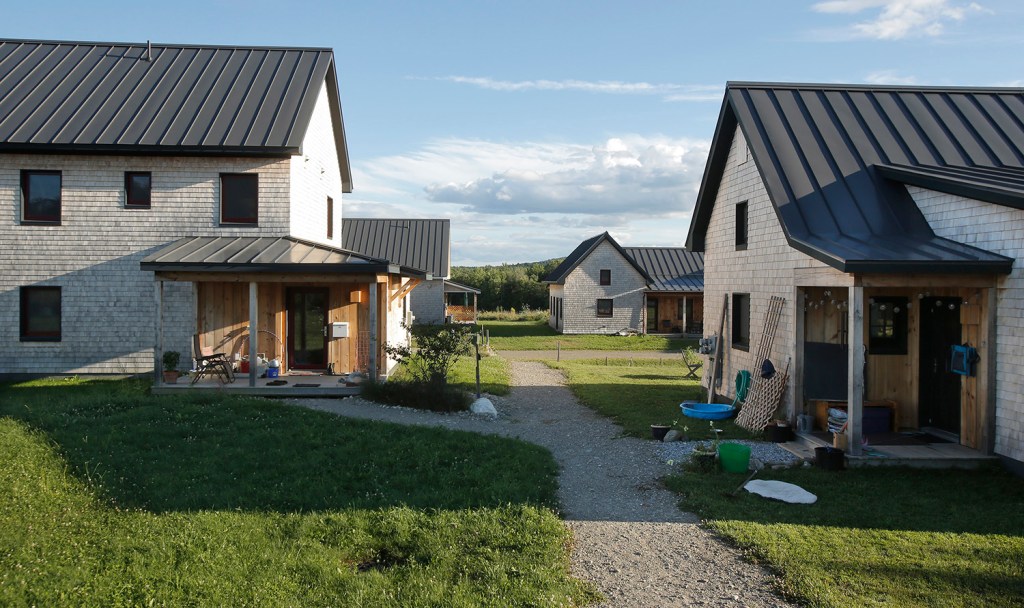
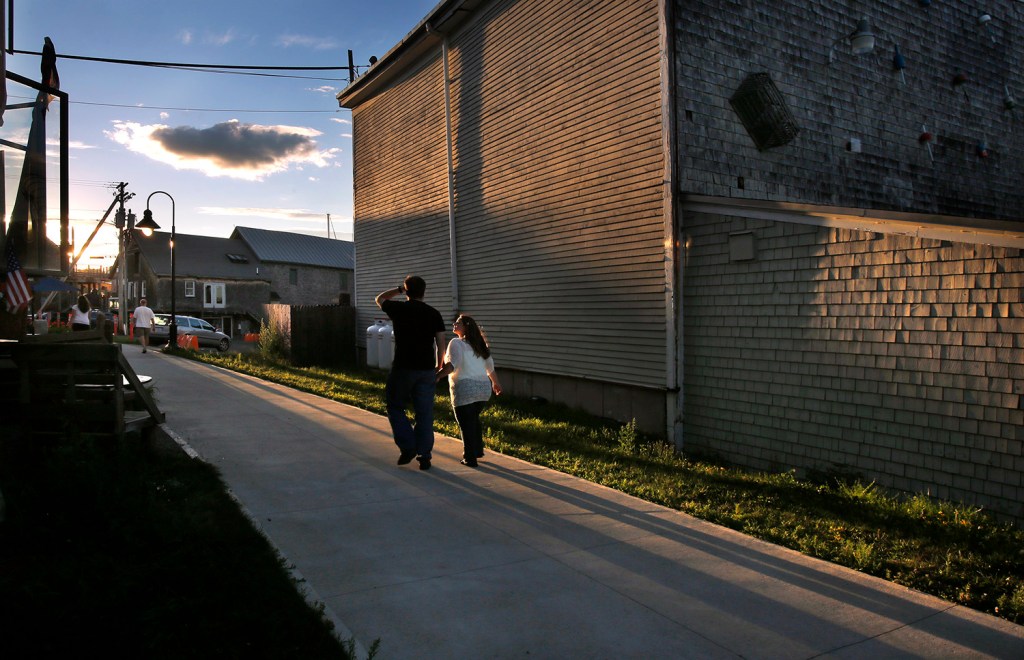
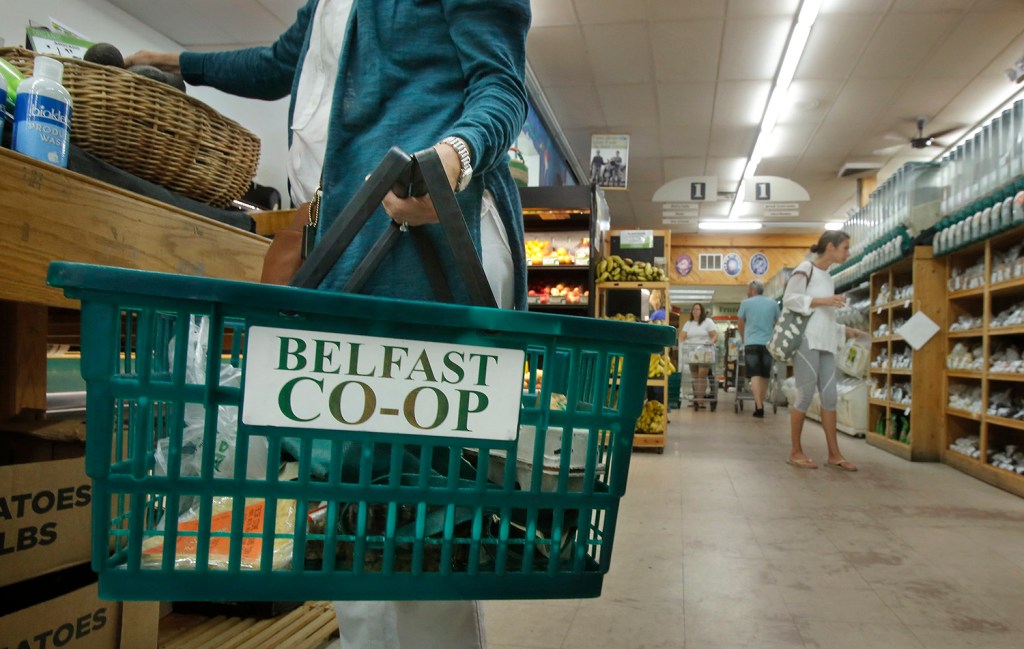
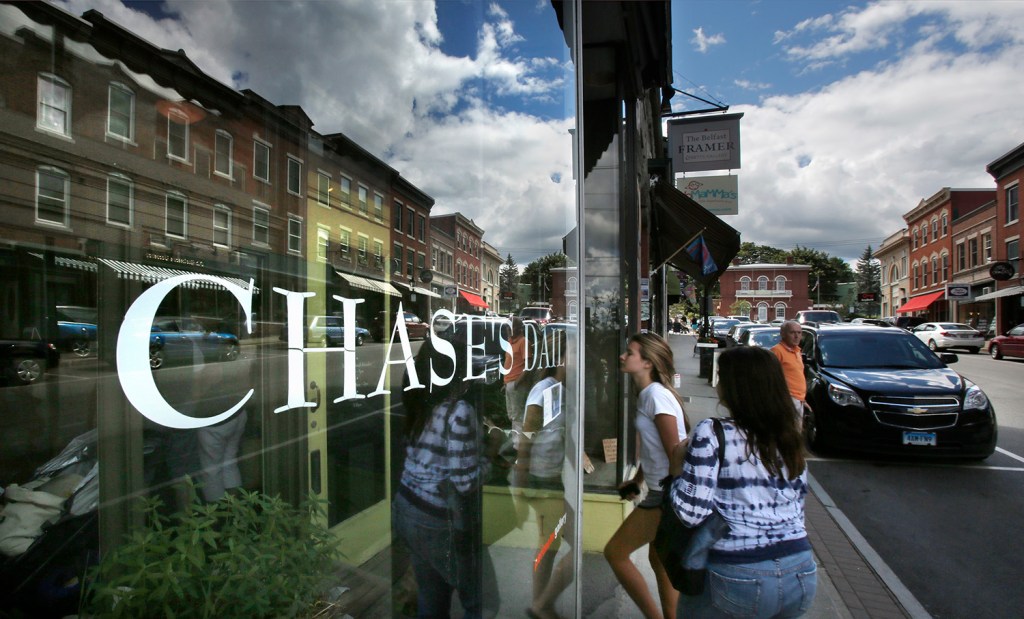
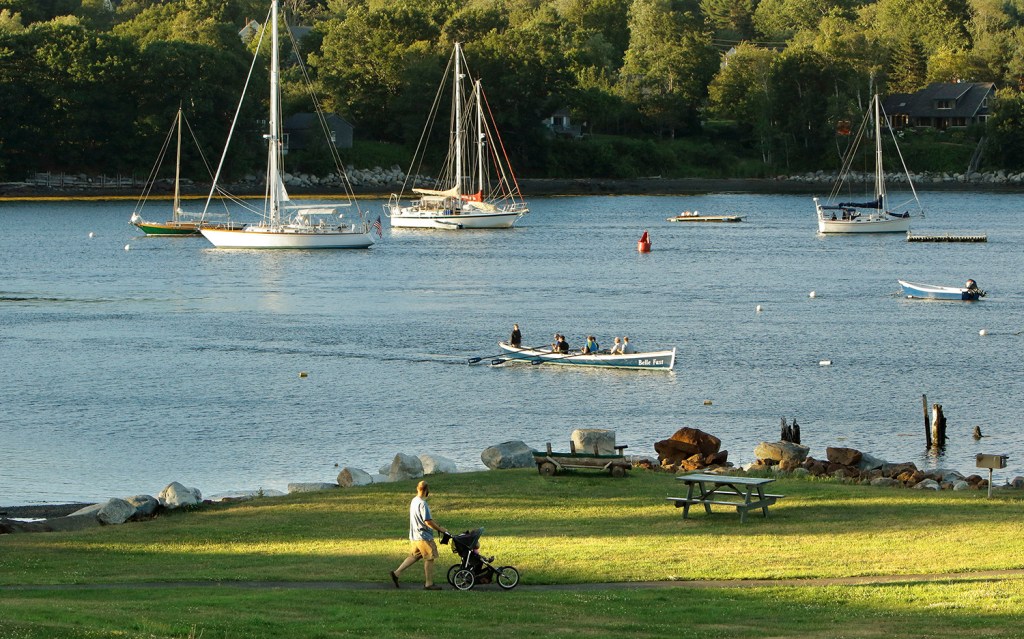
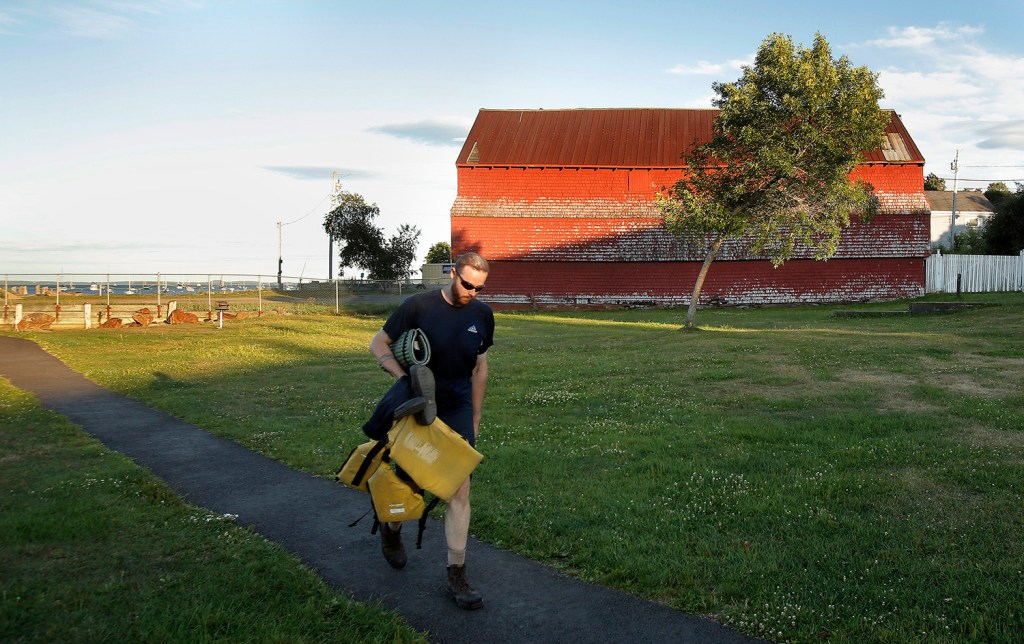


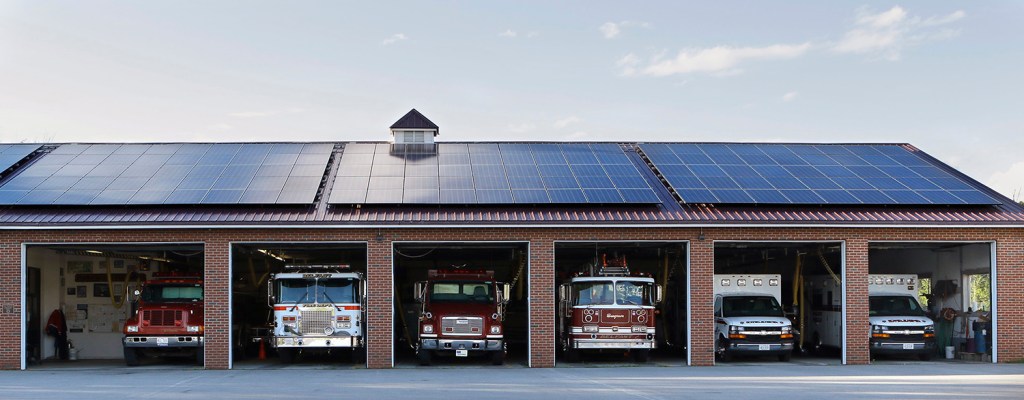
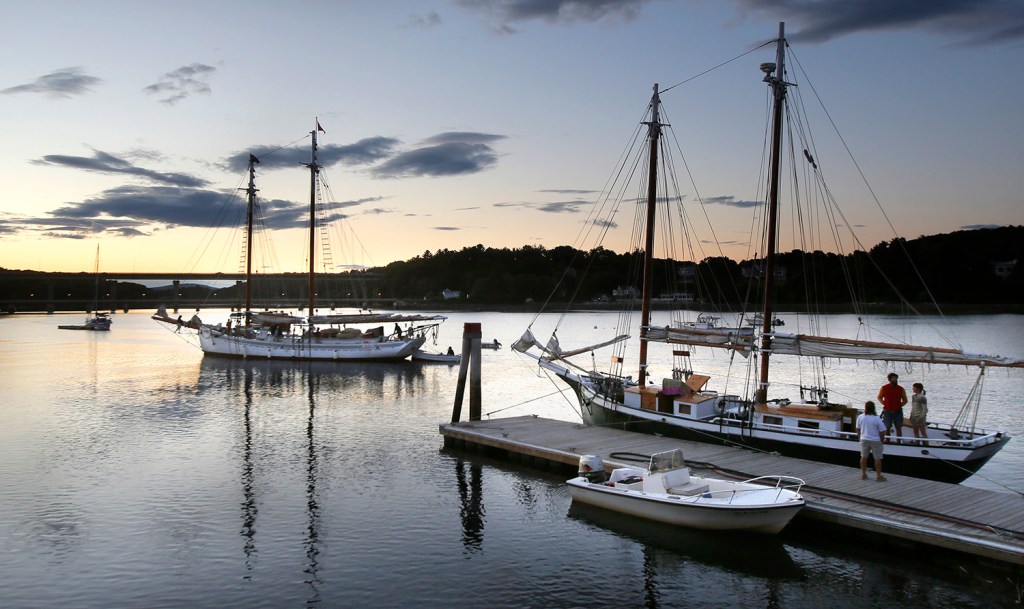
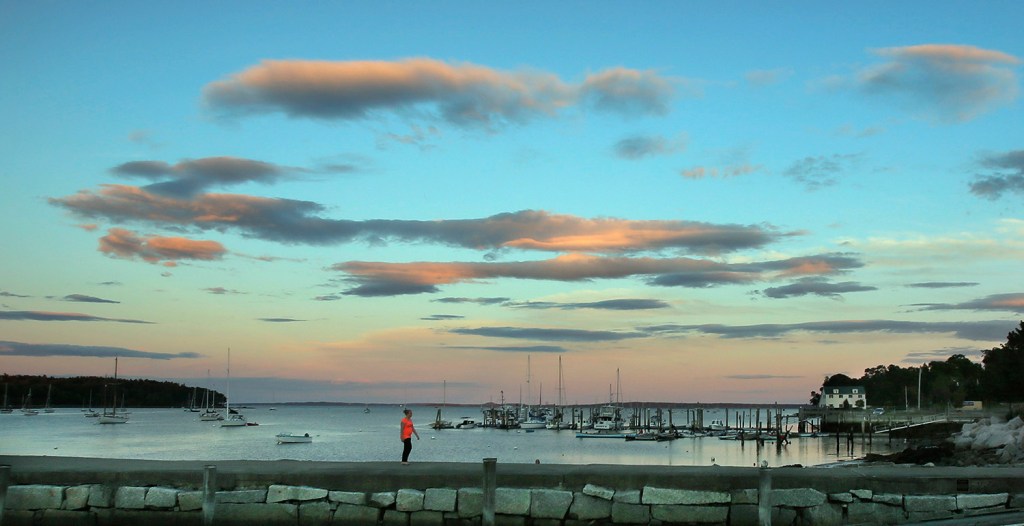


Success. Please wait for the page to reload. If the page does not reload within 5 seconds, please refresh the page.
Enter your email and password to access comments.
Hi, to comment on stories you must . This profile is in addition to your subscription and website login.
Already have a commenting profile? .
Invalid username/password.
Please check your email to confirm and complete your registration.
Only subscribers are eligible to post comments. Please subscribe or login first for digital access. Here’s why.
Use the form below to reset your password. When you've submitted your account email, we will send an email with a reset code.